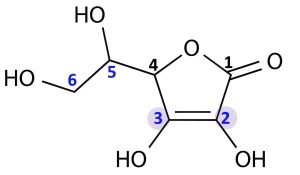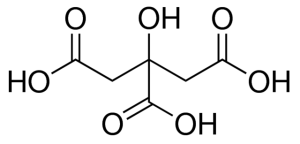Ascorbic acid and citric acid are two compounds commonly found in various foods and supplements, often leading to confusion about their roles and differences. While both are acids with similar sour tastes, they serve distinct purposes in food science, nutrition, and industry. In this article, we’ll explore the key differences between ascorbic acid and citric acid, their respective uses, health benefits, and how they interact with the body.
What is Ascorbic Acid?

Ascorbic acid, also known as Vitamin C, is an essential nutrient required by the human body. It is a water-soluble vitamin that plays a crucial role in various bodily functions, such as:
- Antioxidant Protection: Ascorbic acid acts as a potent antioxidant, protecting cells from oxidative stress and free radical damage.
- Collagen Production: It depends on supporting the maintenance of healthy connective tissue, blood vessels, and skin.
- Immune Support: Vitamin C strengthens immunity by promoting immune cell activity and shortening the duration of common ailments like colds.
- Iron Absorption: By facilitating the body’s absorption of non-heme iron—the type present in plant-based diets—ascorbic acid increases the body’s intake of iron.
Ascorbic acid is found naturally in citrus fruits, strawberries, kiwi, bell peppers, broccoli, and spinach, among other fruits and vegetables. It is also widely used in dietary supplements to support immune health and overall well-being.
What is Citric Acid?

Natural citrus fruits such as lemons, limes, and oranges contain a mild organic acid called citric acid. Unlike ascorbic acid, citric acid is not a vitamin and does not serve any essential nutritional role. However, it is commonly used in the food and beverage industry for its various properties:
- Flavor Enhancer: Citric acid adds a tart, sour taste to foods and drinks, making it a popular ingredient in candies, beverages, and fruit-flavored products.
- Preservative: Its ability to lower the pH level in food prevents the growth of harmful bacteria, making citric acid an effective preservative in canned goods, beverages, and jams.
- pH Adjuster: Citric acid is often used in cleaning agents and cosmetics to balance pH levels, creating a more stable formula.
- Chelating Agent: Citric acid functions as a chelating agent in food and industrial processes, attaching to metal ions and counteracting their harmful effects.
Citric acid is also widely used in household cleaners and personal care products, taking advantage of its non-toxic and biodegradable nature.
Key Differences Between Ascorbic Acid and Citric Acid
Although ascorbic acid and citric acid share similarities, including their natural occurrence in citrus fruits and sour taste, they are chemically and functionally distinct.
Here is a simple comparison chart between Ascorbic Acid and Citric Acid:
| Feature | Ascorbic Acid (Vitamin C) | Citric Acid |
| Chemical Formula | C6H8O6 | C6H8O7 |
| Type | Vitamin | Organic Acid |
| Role in Food | Antioxidant, Preservative, Nutrient Supplement | Flavor Enhancer, Preservative, pH Adjuster |
| Common Uses | Meat, Poultry, Beverages, Dietary Supplements | Beverages, Sauces, Canned Foods, Candy |
| Dosage in Meat & Poultry | Typically 100-500 mg/kg | Typically 500-1000 mg/kg |
| Solubility | Highly Soluble in Water | Highly Soluble in Water |
| pH | Acidic (pH ~2.5) | More Acidic (pH ~2.2) |
| Health Benefits | Boosts Immunity, Antioxidant Properties | Helps with Alkalization, Aids Digestion |
Chemical Structure
- Ascorbic Acid (C₆H₈O₆): Ascorbic acid is a six-carbon compound that functions as a vitamin and antioxidant. Its chemical structure includes a lactone ring, which plays a role in its ability to neutralize free radicals.
- Citric Acid (C₆H₈O₇): Citric acid is also a six-carbon molecule but has a completely different chemical structure. It contains three carboxyl groups and is primarily involved in metabolic processes, such as the Krebs cycle (citric acid cycle) in cellular respiration.
Biological Role
- Ascorbic Acid: Ascorbic acid is vital for human health. This molecule can only be obtained through diet, as humans are not able to synthesize it. It functions as an antioxidant, promotes collagen synthesis, and strengthens the immune system.
- Citric Acid: Citric acid does not play an essential biological role in the body in the same way as ascorbic acid. On the other hand, it contributes to the Krebs cycle, a step in the process by which cells produce energy.
Health Benefits
- Ascorbic Acid: Ascorbic acid offers several health benefits, such as boosting the immune system, protecting cells from oxidative stress, improving skin health, and aiding in wound healing. It is also linked to enhanced iron absorption and may lower the risk of chronic diseases, such as cardiovascular disease.
- Citric Acid: While citric acid doesn’t have the direct health benefits of ascorbic acid, it can aid digestion by balancing acidity in the stomach and enhancing the absorption of minerals like calcium. It also helps prevent the formation of kidney stones by increasing citrate levels in urine, which can prevent calcium oxalate stone formation.
Food Preservation and Usage
- Ascorbic Acid: Ascorbic acid is commonly used as an antioxidant in food products to prevent oxidative damage, such as browning in fruits and vegetables. In processed foods, it helps maintain color, flavor, and freshness.
- Citric Acid: Citric acid finds extensive application as a pH adjustor, flavor enhancer, and preservative. It is more commonly used in a broad range of products, including beverages, candies, jams, and canned foods, due to its ability to inhibit microbial growth by lowering the pH.
Toxicity and Safety
- Ascorbic Acid: Ascorbic acid is generally considered safe, even at high doses. On the other hand, overindulging in supplements may result in digestive problems including cramping in the stomach or diarrhea. The Recommended Dietary Allowance (RDA) for adults is about 65-90 mg per day, but doses up to 2,000 mg are generally considered safe for most people.
- Citric Acid: Citric acid has also been rated as generally recognized as safe (GRAS) by the FDA, indicating that it is safe to consume. It is doubtful that consuming large levels of citric acid in food products will be harmful. However, direct contact with concentrated citric acid in industrial or cleaning products can cause irritation to the skin and eyes.
Which One Should You Choose?
- For Health Benefits: If you are looking for health benefits, such as immune support, collagen production, and antioxidant properties, ascorbic acid (Vitamin C) is the better choice.
- For Food Preparation and Flavor: If you need a souring agent for cooking, food preservation, or flavor enhancement, citric acid is more suitable. It works especially well for creating drinks, jams, and jellies.
Can Ascorbic Acid and Citric Acid Be Used Together?
Yes, ascorbic acid and citric acid can be used together in food preparation and dietary supplements. In fact, many citrus fruits contain both compounds naturally. For example, an orange provides both Vitamin C (ascorbic acid) and citric acid, each contributing to the fruit’s flavor and nutritional profile. In supplements, both acids are sometimes combined to boost antioxidant activity and improve the shelf life of the product.
Conclusion
Ascorbic acid is essential for health as a powerful antioxidant and immune booster, while citric acid is widely used in the food industry for its sour flavor and preservative qualities. Both acids are safe for consumption and can be beneficial when used for their respective purposes. Whether you’re choosing between them for health reasons or food preparation, understanding the differences between ascorbic acid and citric acid will help you make the right choice.
